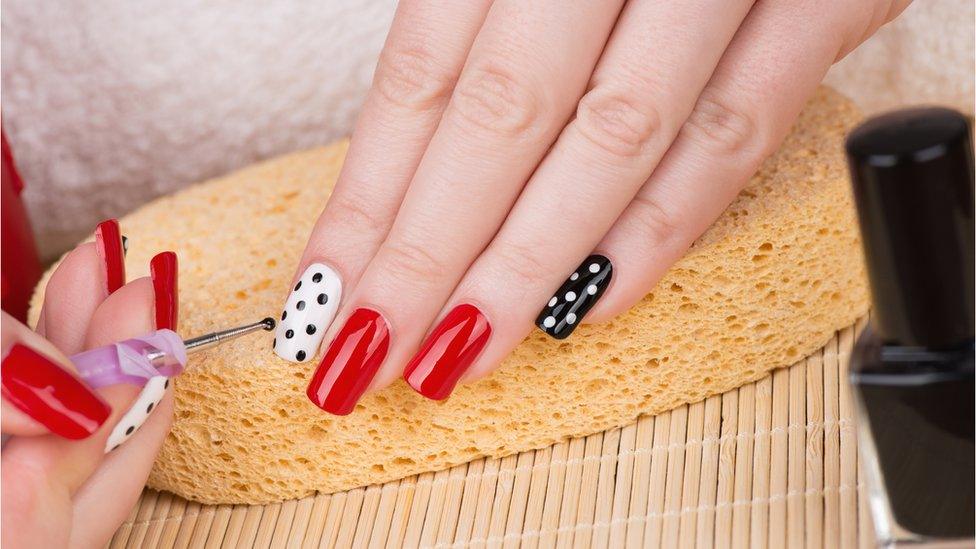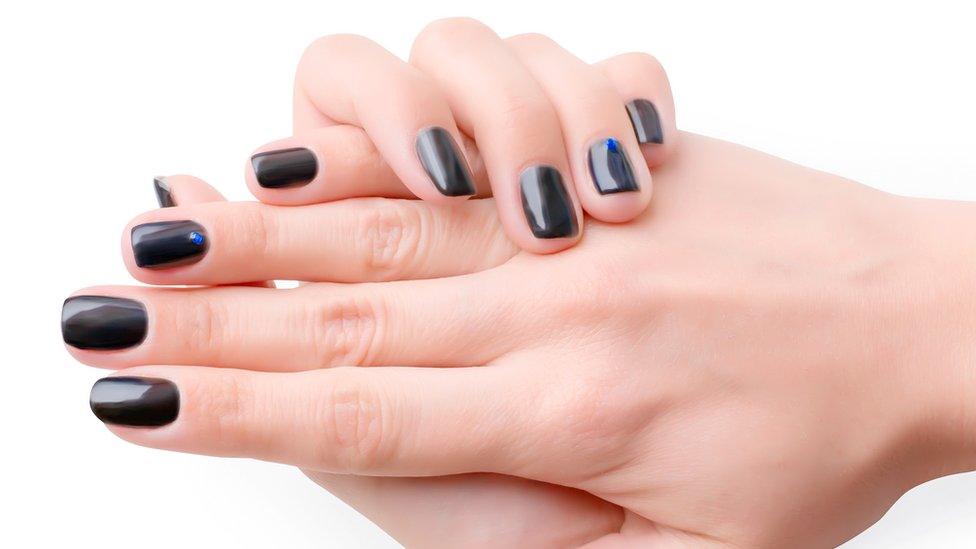Gel and acrylic nails allergy warning
- Published

Allergic reactions from gels and pastes can cause a rash anywhere they touch the body
Skin experts are warning a chemical found in gel, gel polish and acrylic nails can cause an allergic reaction.
Methacrylate chemicals can cause a severe, itchy rash anywhere on the body, not just the fingertips, says the British Association of Dermatologists.
It often occurs when gels and polishes are applied at home or by untrained technicians. Gel, acrylic and gel polish nails all contain methacrylates.
A study suggests that at least 2.4% of people could be affected.
The results were based on allergy tests for the chemical on 4,931 patients attending 13 dermatology units in UK and Ireland in 2017.
Most patients developed their allergy through using nail enhancements, nail or eyelash glue - and a third were affected working as nail beauticians.
Dermatologists are urging the public to be wary of gel and gel polish home kits, and say they want to see more training for those who work in salons.
Allergic reactions can occur when the chemicals come into contact with any part of the skin, causing a rash anywhere on the body, including the eyelids, face, neck and genital region.
Nails can also loosen and in very rare cases, breathing problems can occur.
The allergy was found predominantly in women.
'Lifelong consequences'
Dr David Orton, of the British Association of Dermatologists, said: "It is really important that people know they can develop allergies from artificial nails.
"The truth is that there will be many women out there with these allergies who remain undiagnosed, because they may not link their symptoms to their nails, especially if the symptoms occur elsewhere on the body.
"It is important that they get a diagnosis so that they can avoid the allergen but also because developing an allergy to these chemicals can have lifelong consequences for dental treatments and surgeries where devices containing these allergens are in common use."

Experts urged people to be careful when using home nail kits
Dr Orton said the risk was particularly high for beauticians and other people who worked with nail enhancements and they needed to wear special protection in the form of nitrile gloves.
"Salon owners need to consider the level of training they offer staff in this area as there is a genuine occupational hazard that should be mitigated," he added.
Dr Deirdre Buckley, consultant dermatologist from the Royal United Hospital Bath and president of the British Society of Cutaneous Allergy, said many doctors were unaware of the issue.
"Allergy to methacrylates has the potential to behave like many of the other significant contact allergy epidemics that have occurred in the last few decades."
She urged people to be careful when using home kits.
"If you do use one, make sure that you use the recommended UV lamp for curing and read the instructions carefully.
"Using the wrong lamp may mean that the gel polish does not cure properly and this means an increased chance of allergy."
She said any direct skin contact with the methacrylate nail product should be avoided.